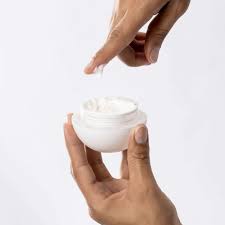Moisturizer is one of the most essential steps in any skincare routine. It keeps your skin hydrated, protects your barrier, and supports overall health and glow. But not all moisturizers are created equal—and choosing the wrong one can leave your skin oily, flaky, irritated, or congested.
In this article, you’ll learn how to pick the best moisturizer for your skin type, understand the most helpful ingredients, and build a simple routine that keeps your skin nourished all day.
Why Moisturizing Matters
Moisturizers help:
- Seal in hydration
- Prevent water loss
- Support a strong skin barrier
- Reduce flakiness, irritation, and dullness
- Keep skin soft, smooth, and plump
Even oily and acne-prone skin needs a good moisturizer—hydration and oil are not the same.
Know Your Skin Type First
Before choosing a moisturizer, identify your skin type:
- Oily skin: shiny throughout the day, especially in the T-zone
- Dry skin: feels tight, flaky, or rough
- Combination skin: oily in some areas, dry in others
- Sensitive skin: prone to redness, stinging, or reactions
- Normal skin: balanced, rarely breaks out or gets dry
Best Moisturizers by Skin Type
Oily Skin
What to look for:
- Oil-free or non-comedogenic
- Lightweight, fast-absorbing texture
- Gel or water-based formulas
Best ingredients:
- Hyaluronic acid
- Niacinamide
- Aloe vera
- Green tea extract
Avoid:
- Heavy creams or oils
- Coconut oil or cocoa butter (may clog pores)
Dry Skin
What to look for:
- Rich, creamy texture
- Emollients and occlusives to lock in moisture
- Repair-focused formulas
Best ingredients:
- Ceramides
- Squalane
- Shea butter
- Glycerin
- Urea
Avoid:
- Alcohol-heavy formulas
- Fragrances that may irritate dry, cracked skin
Combination Skin
What to look for:
- Lightweight lotion or gel-cream
- Balancing formulas
- Non-greasy finish
Best ingredients:
- Panthenol
- Niacinamide
- Jojoba oil
- Humectants like hyaluronic acid
Avoid:
- Anything too heavy for oily zones or too light for dry areas
Sensitive Skin
What to look for:
- Minimal ingredient lists
- Fragrance-free and alcohol-free
- Soothing formulas
Best ingredients:
- Oat extract
- Allantoin
- Centella asiatica
- Aloe vera
- Bisabolol
Avoid:
- Essential oils
- Strong actives unless dermatologically recommended
Normal Skin
What to look for:
- Balanced hydration
- Lightweight lotion or cream
- Gentle and non-irritating formula
Best ingredients:
- Glycerin
- Peptides
- Ceramides
- Vitamin E
Avoid:
- Skipping moisturizer—your skin still needs protection
When and How to Apply Moisturizer
- Apply morning and night after cleansing (and serum, if you use one)
- Use on damp skin to lock in hydration more effectively
- Massage gently using upward motions
- Don’t forget your neck and chest
Signs You’re Using the Wrong Moisturizer
- Skin feels greasy or sticky after applying
- Breakouts appear shortly after use
- Skin still feels tight or flaky
- Stinging, redness, or burning sensation
If you experience any of these, try switching formulas or simplifying your routine.
Budget-Friendly Moisturizer Recommendations
Oily/Combo Skin:
- Neutrogena Hydro Boost Water Gel
- Simple Hydrating Light Moisturizer
Dry/Sensitive Skin:
- CeraVe Moisturizing Cream
- Vanicream Daily Facial Moisturizer
Normal Skin:
- Nivea Soft Moisturizing Cream
- The Ordinary Natural Moisturizing Factors + HA
Final Thought: The Right Moisturizer Makes All the Difference
Choosing the right moisturizer doesn’t have to be complicated—it’s about knowing your skin and giving it what it truly needs. A good moisturizer won’t just hydrate your face; it will help you feel more comfortable and confident every day.
Moisturize with intention, and your skin will reward you with balance, glow, and resilience.
